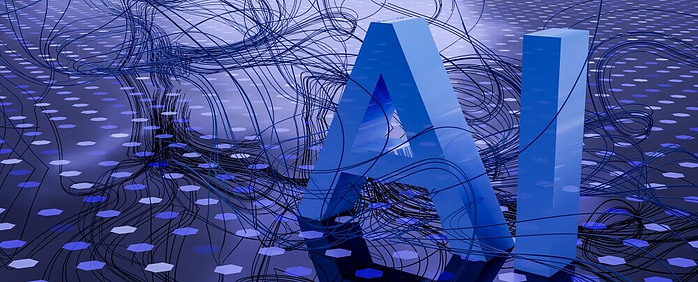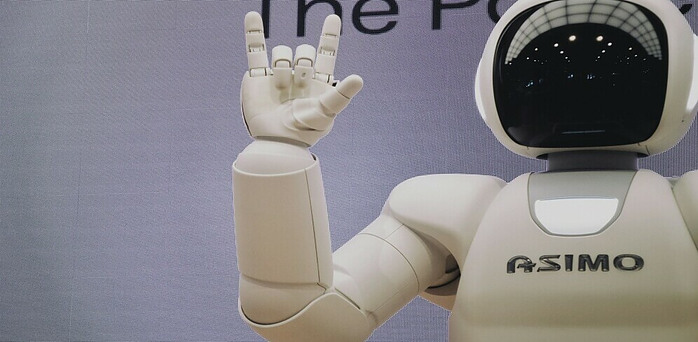 It’s well known by most people that AI has come onto the scene with the ability to improve the quality of life. I’m going to kick things off by diving into how AI is shaking up the world of storytelling. The traditional methods of penning down scripts and plotting narratives are being complemented, and sometimes replaced, by innovative AI tools. These sophisticated systems can analyze vast libraries of content to generate storylines that might take a human writer much longer to create.
It’s well known by most people that AI has come onto the scene with the ability to improve the quality of life. I’m going to kick things off by diving into how AI is shaking up the world of storytelling. The traditional methods of penning down scripts and plotting narratives are being complemented, and sometimes replaced, by innovative AI tools. These sophisticated systems can analyze vast libraries of content to generate storylines that might take a human writer much longer to create.
You’re going to find out about personalization, a core benefit AI brings to the table. Nowadays, streaming services employ algorithms to not just suggest what viewers might like, but also to tailor content to individual preferences, potentially altering the path of a storyline based on viewer behavior. It’s like having a story that adapts to you, rather than the other way around.
But AI’s influence doesn’t stop at story creation or personalized experiences. It extends to the realm of visual effects (VFX) and immersive experiences where AI technologies enable creators to produce scenes that were once deemed impossible or too costly. From de-aging actors to creating vast, explorable worlds, AI helps bring the unimaginable to the screen.
This isn’t just about adding a new paint coat; it’s about redefining engagement. When AI is applied to the non-linear and interactive storytelling, such as in video games, it creates dynamic environments that respond to the player’s decisions, leading to unique experiences for every user. Choosing something that resonates with you has never been so doable.
Enabling The Music Industry with Harmony or Disruption?
 The music world is in the midst of an AI-powered transformation, raising as many eyebrows as headsets. I’m going to walk you through some of the most electrifying developments AI has brought to the table. You’re going to find out about AI’s capabilities in shaking up everything from songwriting to the listener experience.
The music world is in the midst of an AI-powered transformation, raising as many eyebrows as headsets. I’m going to walk you through some of the most electrifying developments AI has brought to the table. You’re going to find out about AI’s capabilities in shaking up everything from songwriting to the listener experience.
To start, AI is now stepping into the role of composer and producer. It’s analyzing vast amounts of music to create new tunes that blur the lines between human-composed and machine-generated music. This isn’t just about algorithms pumping out robotic beats; it’s about crafting complex, emotional tracks that challenge our notions of artistry.
Continuing with impact, think about the last time you used a music streaming service. The recommendations you received? They are the work of AI’s learning algorithms, understanding your preferences to deliver personalized playlists. This is a game-changer for discovering new artists and genres, but it also shapes musical tastes on a global scale.
The emergence of virtual artists is a curious new trend. These AI-driven acts perform, generate buzz, and sometimes gain followings just like their flesh-and-blood counterparts. Are they a novelty, or are they a sign of what’s to come? That’s something the industry is still toying with the answer to.
Now, this balance of AI’s creative assistance with human musicianship opens a wider dialogue about the role of AI in creative processes. Ethical questions come into play, like ownership of AI-generated content, and whether technology should step so deeply into domains we consider uniquely human.
The AI Artist Can Redefine Visual Arts and Games
 AI’s invasion into the visual arts and gaming worlds has been nothing short of a game-changer. Art creation, once exclusive to humans, is now an arena where AI algorithms contribute, creating pieces that are sometimes indistinguishable from those made by human hands. This surge of AI-generated art is sparking heated debates in the art world about creativity, originality, and what it means to be an artist in the 21st century.
AI’s invasion into the visual arts and gaming worlds has been nothing short of a game-changer. Art creation, once exclusive to humans, is now an arena where AI algorithms contribute, creating pieces that are sometimes indistinguishable from those made by human hands. This surge of AI-generated art is sparking heated debates in the art world about creativity, originality, and what it means to be an artist in the 21st century.
In video game development, AI is a powerhouse. Game designers are using AI to create more realistic NPCs (non-player characters), improving in-game physics, and even designing entire levels. This not only streamlines production but injects a level of unpredictability and sophistication into the games that wasn’t possible before, enhancing the player experience dramatically.
The animation and graphic design sectors are also reaping the economic and accessibility perks of AI. Tasks that once took hours of meticulous labor can now be achieved in a fraction of the time, opening doors for smaller studios and independent creators to produce high-quality work without the need for excessive funding.
However, as AI starts to blur the lines between creator and tool, it’s raising questions around originality and copyright. AI-created content—be it artwork, game assets, or animations—is generating a complex conversation about intellectual property: who owns an AI-generated creation, the human who programmed it, or the AI itself?
Future Audience Engagement Can Relish AI’s Predictive Power in Entertainment
Imagine knowing you’re going to love a movie even before you watch the trailer. That’s the power AI holds in the entertainment industry today. It’s not just about recommending shows; it’s about understanding intricate patterns of user preferences to predict blockbusters and personalize experiences like never before.
The movie you’re going to watch this weekend might have been suggested by an algorithm that learned your taste over many pizza and movie nights. AI is revolutionizing marketing strategies by using predictive analytics to create targeted content, ensuring that producers connect directly with their audience’s desires.
But it’s more than just movies. Remember that concert recommendation that popped up last week? An AI probably had a hand in that, using social media behavior to predict which events might get fans excited. It’s all about engaging you more deeply with the entertainment you love.
However, with great power comes great responsibility. As AI delves into our viewing habits, privacy concerns bubble up. It’s crucial to balance the benefits of AI-driven personalization with the respect for individual privacy. Staying transparent about how data is used can help maintain that trust essential to audience relationships.
In a nutshell, AI is setting the stage for an era where every aspect of entertainment is tailored to individual preferences. Still, the challenge lies in ensuring these advances enhance rather than compromise our control over personal data. As we look to the future, it’s clear AI will continue to be a game-changer for how entertainment is created, shared, and enjoyed.